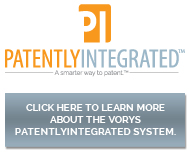Client Alert: Final Rule on Patent Agent-Client Privilege
In February 2015, the United States Patent and Trademark Office (the office) solicited comments as to whether it should recognize privilege for U.S. patent agents and foreign attorneys or agents. Following the comment period, the office published a notice and final rule in the Federal Register on Nov. 7, 2017 (82 Fed. Reg. 214 at 51572) officially recognizing the privilege, effective December 7, 2017.
 In the notice, the office noted that the various U.S. courts were not united in how they answer the question of extending privilege to non-attorney U.S. and foreign patent professionals, leading to different approaches at the district court level. The Federal Circuit took up the question in 2016, recognizing privilege for U.S. patent agents, but not foreign agents and attorneys. In re Queen’s University at Kingston, 820 F.33d 1287 (Fed. Cir. 2016). Despite this disconnect at the judicial level, the comments the office received unanimously supported a rule recognizing that communications between patent applicants or owners with their U.S. agents or foreign patent practitioners should be recognized as privileged to the same extent as communications with U.S. patent attorneys. The office agreed.
In the notice, the office noted that the various U.S. courts were not united in how they answer the question of extending privilege to non-attorney U.S. and foreign patent professionals, leading to different approaches at the district court level. The Federal Circuit took up the question in 2016, recognizing privilege for U.S. patent agents, but not foreign agents and attorneys. In re Queen’s University at Kingston, 820 F.33d 1287 (Fed. Cir. 2016). Despite this disconnect at the judicial level, the comments the office received unanimously supported a rule recognizing that communications between patent applicants or owners with their U.S. agents or foreign patent practitioners should be recognized as privileged to the same extent as communications with U.S. patent attorneys. The office agreed.
The rule extends privilege not just to direct communications between a client and a U.S. or foreign agent, but also between an attorney working as a client’s representative and such an agent – this is in keeping with federal privilege law.[1] The office recognized that such communications are commonly implicated in Patent Trial and Appeal Board (PTAB) proceedings, but made clear that the new rule does not only protect communications for the purpose of PTAB proceedings, but also protects communications made when seeking patents at the U.S. or foreign patent offices.
The notice made clear that the rule does not expand basic privilege, and that 37 C.F.R. § 1.56 continues to control the duty to disclose. That is, privilege does not apply to the filing and prosecution of the patent application per se; it only governs material available to third party adversaries in adjudicated proceedings before the USPTO. Further, in keeping with traditional privilege metes and bounds, it may not be used to shield underlying facts or business documents.
Finally, the notice addressed comments asking the USPTO to clarify the scope of the functions U.S. and foreign agents are authorized to provide. The office refused to provide any guidance beyond noting that authorized functions are set forth in 37 C.F.R. § 11.5(b)(1) and are not affected by the Rule.
Practice Note:
Going forward, communications between a client and U.S. patent agents and those between a client and foreign patent agents and attorneys will be considered privileged if the communication is “reasonably necessary and incident to the scope of the practitioner’s authority” to the same extent as if that communication had been made between the client and U.S. attorney.
[1] The notice and final rule does not extend to state court sources of privilege.

